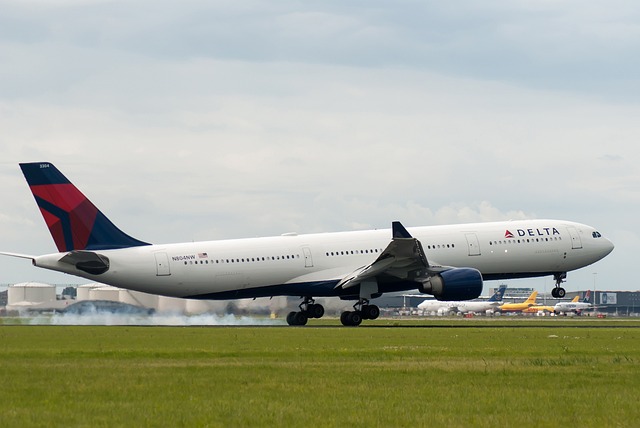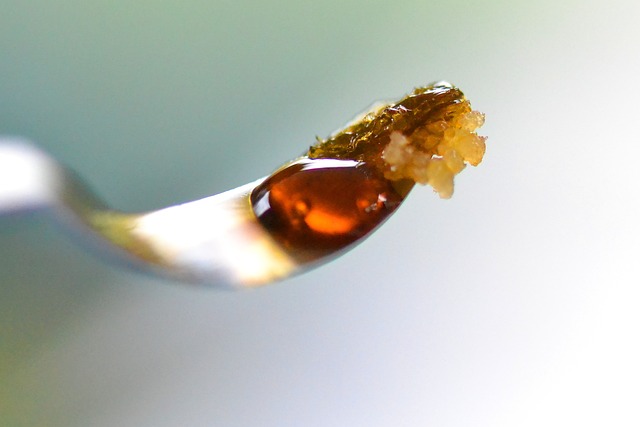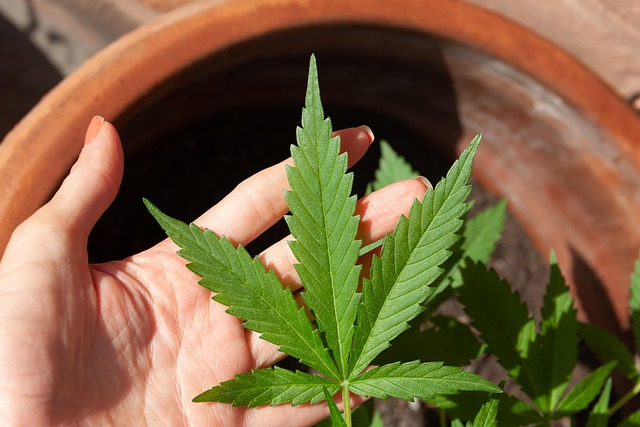“Unraveling the legal landscape of Delta-8 THC, a growing trend in many regions, this comprehensive guide explores its global reach and local variations. From understanding the compound’s properties to navigating the ‘Delta-8 THC near me’ market, we delve into the factors shaping legality. We examine international perspectives, regional differences, and successful business models operating within legal frameworks. Additionally, we forecast future legislation changes and provide resources for staying informed about Delta-8 THC regulations, ensuring you’re up-to-date on this dynamic topic.”
Understanding Delta-8 THC: A Brief Overview
Delta-8 THC, a naturally occurring cannabinoid, has gained significant popularity in recent years, especially as an alternative to its more well-known counterpart, Delta-9 THC. Unlike Delta-9, which is responsible for the psychoactive effects associated with marijuana, Delta-8 offers a milder high and is becoming increasingly legal across various regions. This change in legislation has sparked curiosity among those seeking the potential therapeutic benefits of cannabis without the intense mental alterations.
Available in various forms, from edibles to vapes, Delta-8 THC near me has become easily accessible to curious consumers. Its unique properties make it an intriguing option for those looking to relieve stress, anxiety, or even certain types of pain. As with any substance, understanding its effects and potential risks is crucial before incorporating Delta-8 into your routine, especially when searching for local suppliers.
Legal Status of Delta-8 THC: A Global Perspective

The legal status of Delta-8 THC (Δ-8-tetrahydrocannabinol) varies significantly across different countries and regions, reflecting a complex global landscape in the cannabis industry. While it has gained popularity as a milder cannabinoid with potential therapeutic benefits, its regulatory framework remains hazy for many. In the United States, for instance, Delta-8 THC is considered legal in several states due to a loophole in federal law, allowing products derived from hemp (with less than 0.3% Δ-9-THC) to be sold and distributed. This has led to a surge in demand for Delta-8 THC near me options, with many retailers offering various products, including edibles, vapes, and tinctures.
However, on a global scale, the narrative differs. Many countries have classified Delta-8 THC as an illegal substance, treating it similarly to its more well-known counterpart, Delta-9 THC. This discrepancy in regulations has created confusion for consumers and businesses alike, especially with the increasing cross-border trade of these products. As the demand for Delta-8 THC continues to grow, so does the need for clarity and standardization in international laws, ensuring consumer safety and addressing public health concerns related to cannabis derivatives like Delta-8 THC near me and worldwide.
Exploring the Growth and Popularity of Delta-8 Near Me
In recent years, the emergence and growing popularity of Delta-8 THC near me have sparked significant interest among consumers looking for alternative cannabis experiences. This relatively new compound, a minor cannabinoid found in the hemp plant, has gained traction due to its potential psychoactive effects similar to Delta-9 THC but with less potent attributes. As such, it offers a more subtle high, appealing to those seeking a milder alternative without the strong mind-altering properties of traditional marijuana.
The accessibility of Delta-8 THC near me has expanded through various channels, including online retailers and specialty stores dedicated to cannabis products. This growing trend reflects a changing landscape in the legal cannabis industry, where consumers are increasingly demanding diverse options beyond conventional Delta-9 products. As regulations continue to evolve, the popularity of Delta-8 is expected to surge, further solidifying its place as a desirable choice for those seeking novel and accessible cannabis experiences.
Key Factors Determining Legality in Different Regions

The legality of Delta-8 THC, a cannabinoid derived from hemp, varies significantly across different regions. Key factors determining this legality include local and federal regulations specific to each area. One crucial aspect is the definition and classification of hemp and cannabis under the law. In many places, Delta-8 THC falls into a legal grey area due to its structural similarity to both hemp and THC (tetrahydrocannabinol), the psychoactive compound in marijuana.
Additionally, public perception and health considerations play important roles. Some regions have embraced medical and recreational cannabis, leading to more permissive regulations for related products like Delta-8 THC. Conversely, areas with stricter anti-drug policies may classify it as an illicit substance. Consumers looking for Delta-8 THC Near Me should stay informed about local laws, consult reputable sources, and ensure compliance to avoid legal repercussions.
Navigating Local Laws: How to Find Delta-8 Near You

Navigating local laws is a crucial step in finding Delta-8 THC near you. The legality of delta-8 varies significantly from one area to another, so it’s essential to check your jurisdiction’s specific regulations before making a purchase. Many regions have caught up with the growing popularity of delta-8, legalizing its sale and use for recreational or medicinal purposes. However, some areas still lag behind, classifying delta-8 as an illegal substance.
To find delta-8 THC near you, start by researching your state or local government’s official resources. These platforms often provide up-to-date information on the legal status of various substances. You can also consult with legal experts specializing in cannabis laws for more accurate insights. Once you confirm delta-8’s legality in your area, identify reputable vendors who adhere to these regulations. Online reviews and local recommendations can help pinpoint trusted dispensaries or retailers offering a range of delta-8 products, ensuring compliance with your region’s specific laws while satisfying your requirements for Delta-8 THC Near Me.
Challenges and Controversies Surrounding Delta-8 THC Legality

The legality of Delta-8 THC, a cannabinoid derived from hemp, has sparked debates and raised concerns among consumers seeking relaxation and medicinal relief. While it is legal in many areas, there are significant challenges and controversies surrounding its status. One of the primary issues is the evolving nature of regulations; what’s considered legal today might be subject to change as local and federal governments adapt their policies. This uncertainty leaves consumers wondering about the future of Delta-8 THC near me and its accessibility.
Another controversy lies in product quality and safety. As the market expands, there’s an increased risk of counterfeit or contaminated products, especially with less regulated sales channels. The lack of standardized testing and quality control measures makes it difficult for consumers to verify the potency and purity of Delta-8 THC products, raising questions about potential health risks. These challenges underscore the need for clear legal frameworks and robust regulatory oversight to ensure consumer safety and legitimate access to Delta-8 THC in various regions.
Case Studies: Successful Businesses Operating Within Legal Frameworks

In today’s dynamic market, understanding and adhering to legal frameworks can be a game-changer for businesses, especially in industries that were once considered grey areas. Case studies of successful enterprises operating within strict regulations offer valuable insights into navigating legal complexities. For instance, the legalization of delta-8 THC (a minor cannabinoid found in hemp) has sparked a new wave of innovation and business opportunities across various regions near me. Many startups have embraced this shift, creating a thriving market for delta-8 THC products while ensuring consumer safety and compliance with local laws.
These businesses have meticulously crafted their strategies to stay within the legal boundaries, fostering trust among customers who seek alternative options. Their success highlights the importance of staying informed about changing regulations and adapting business models accordingly. As more regions recognize the potential benefits of delta-8 THC, similar narratives of entrepreneurial resilience and responsible growth can be expected, reshaping the landscape for this once-niche market.
Future Outlook: Predicting Changes in Delta-8 THC Legislation

The future of Delta-8 THC (Delta-8-tetrahydrocannabinol) legislation is an intriguing topic, especially as its popularity continues to surge in many areas across the globe. With increasing consumer demand for Delta-8 THC near me, regulatory bodies are likely to adapt and respond to this evolving market trend. Recent changes in attitudes towards cannabis products have already paved the way for more liberalization of laws surrounding Delta-8 THC.
Predicting the exact trajectory is challenging, but several factors may influence future legislation. As research on Delta-8 THC’s potential therapeutic benefits deepens, it could lead to more medical applications and broader acceptance. Additionally, public opinion plays a significant role; growing awareness and support for cannabis-derived products might push governments to align with these changing perspectives. The evolving legal landscape of Delta-8 THC suggests an exciting future where accessibility and regulation find a harmonious balance, catering to both consumer desires and public safety concerns.
Resources for Staying Informed on Delta-8 THC Regulations

Staying informed about Delta-8 THC regulations is crucial, especially as the legal status varies across areas. To keep up with the latest changes, there are several reliable resources available. Many local governments and health departments publish regular updates on substance regulations, including Delta-8 THC laws. Websites like “Delta-8 THC Near Me” offer comprehensive guides and news articles, helping users navigate the evolving legal landscape. Additionally, industry associations and legal experts often provide in-depth analysis and insights into specific regions’ regulatory frameworks, ensuring you have access to accurate information tailored to your location.
